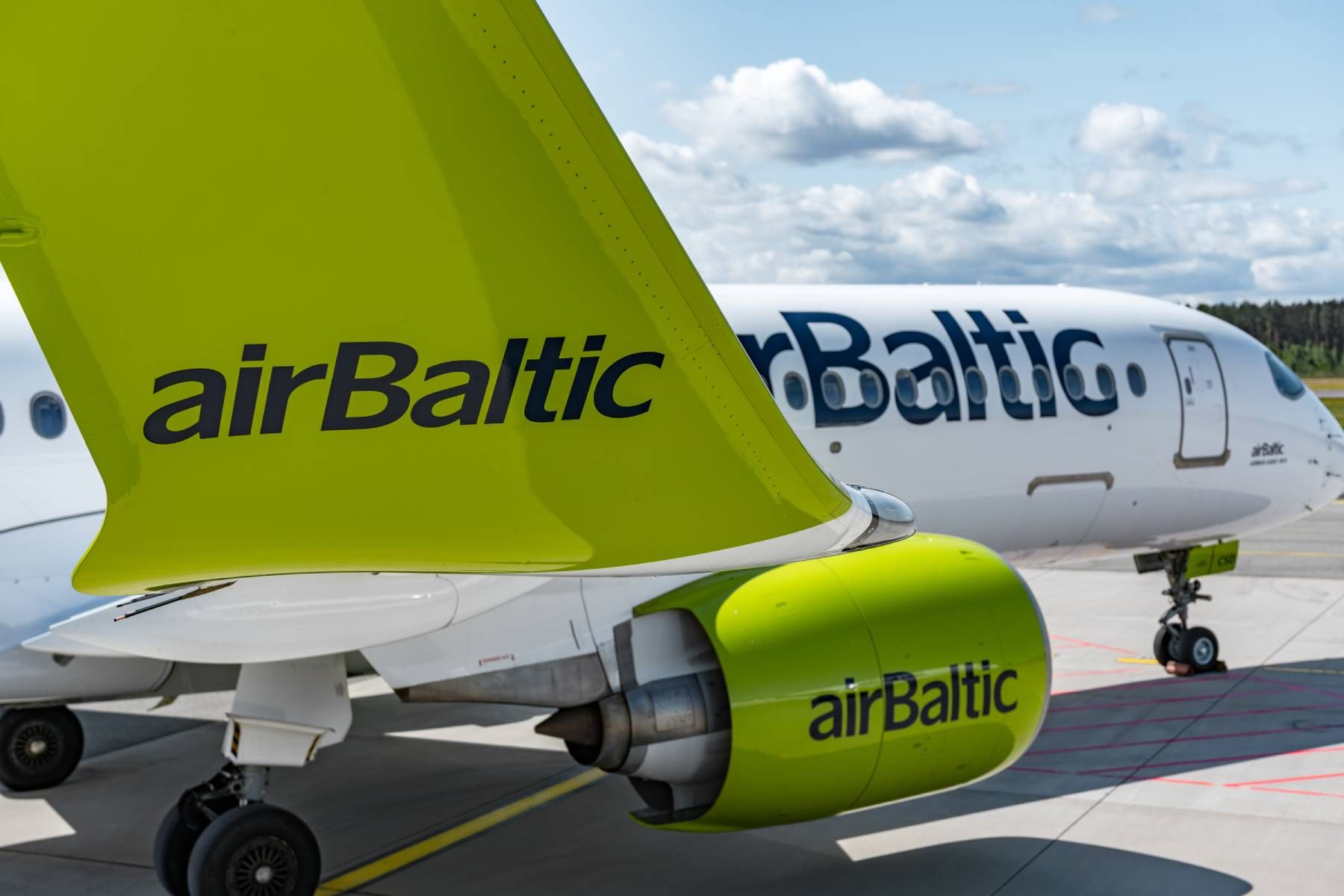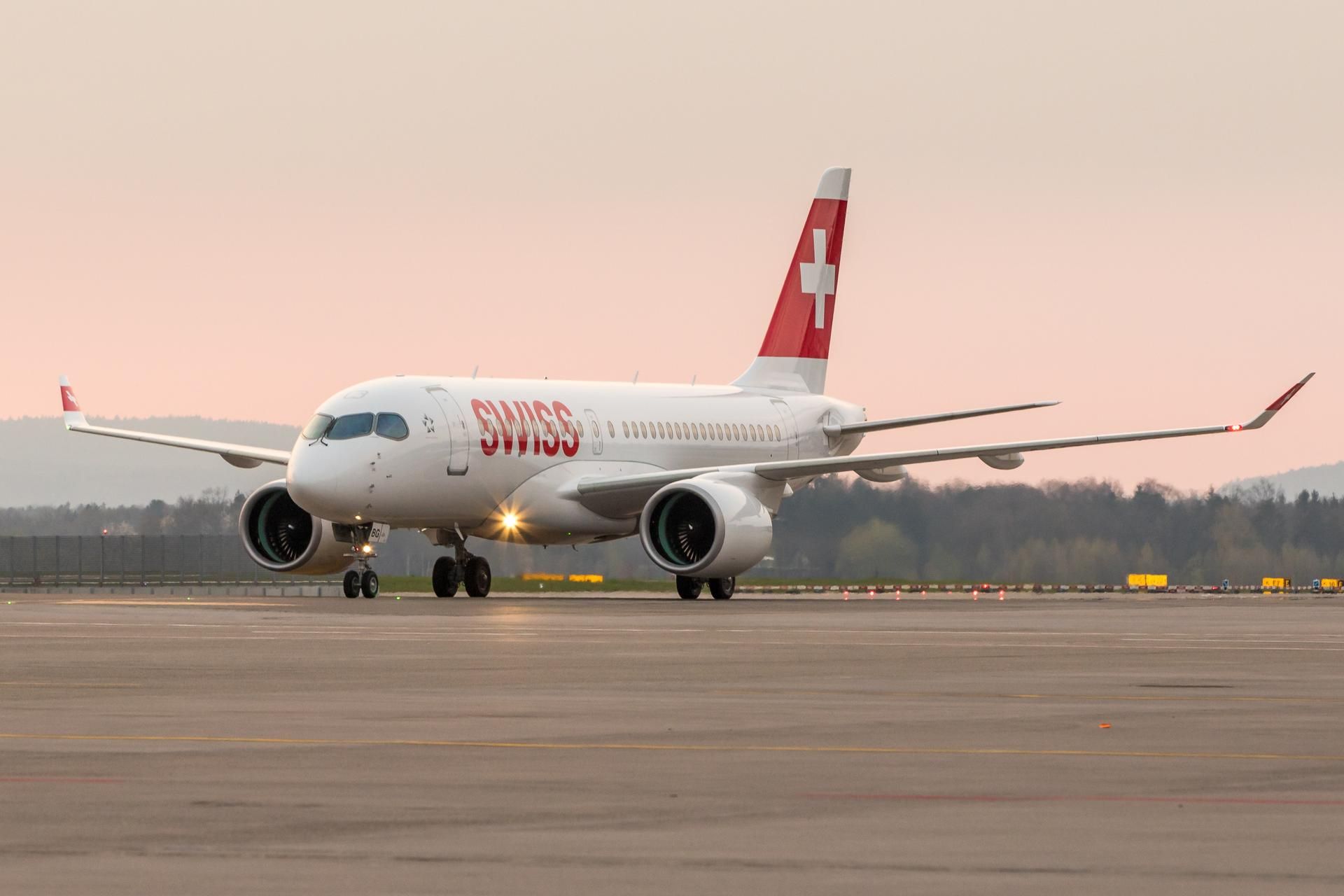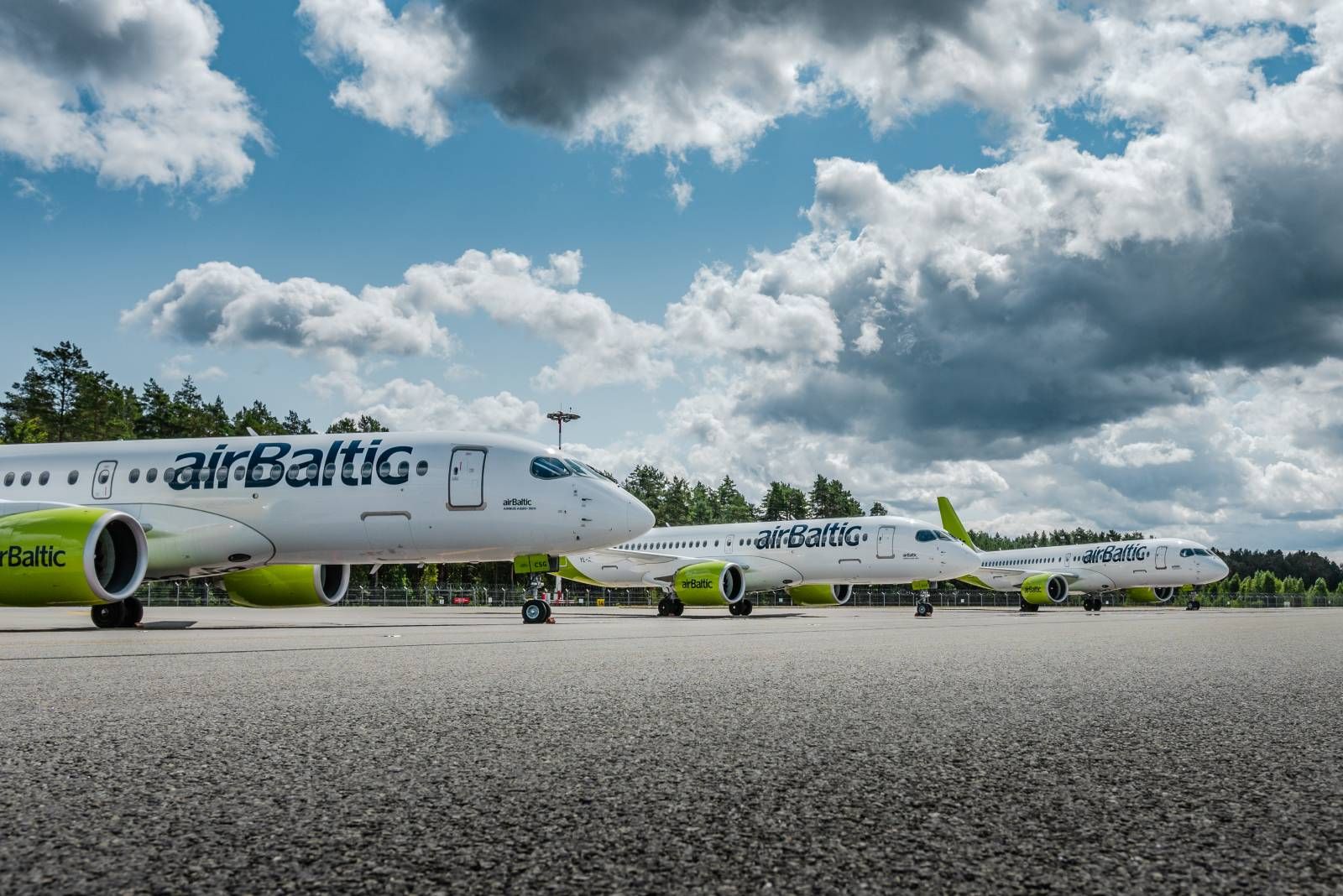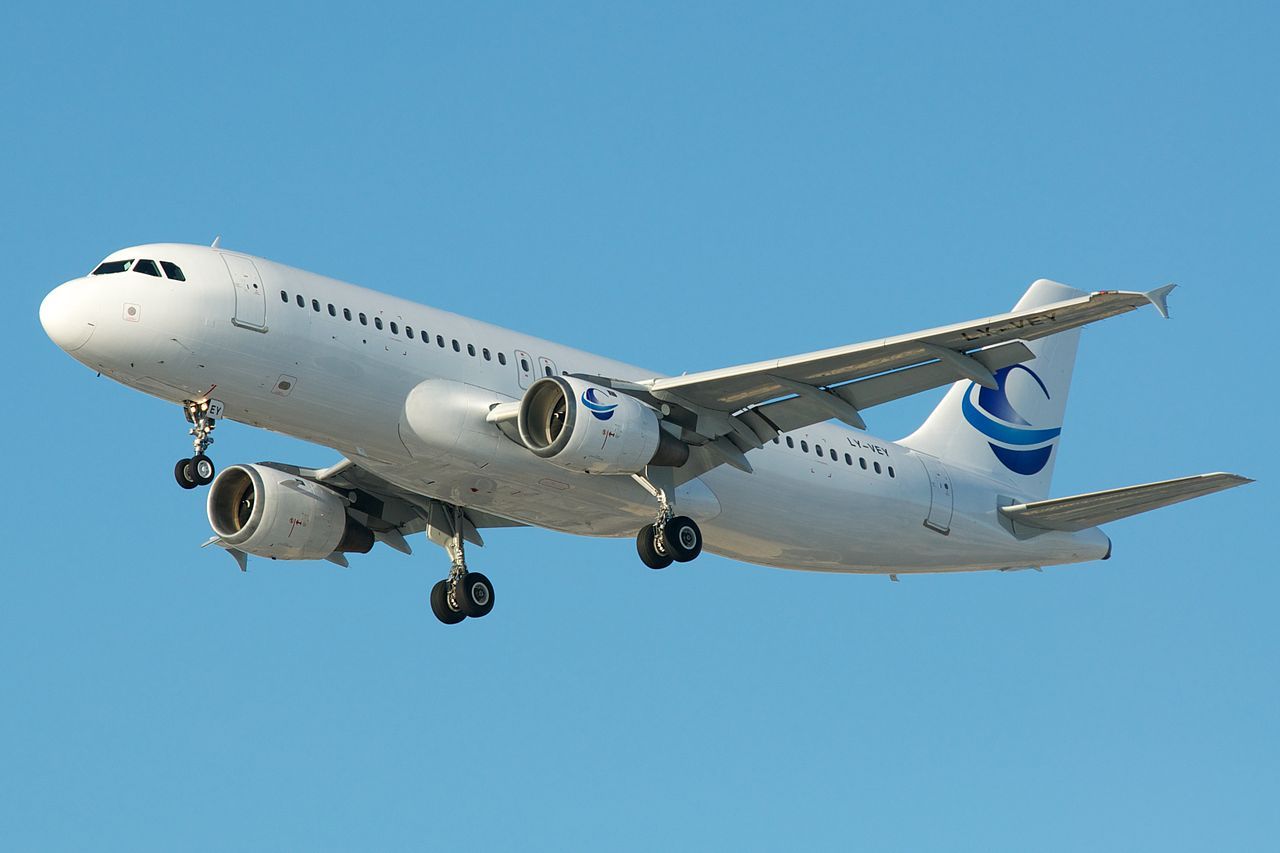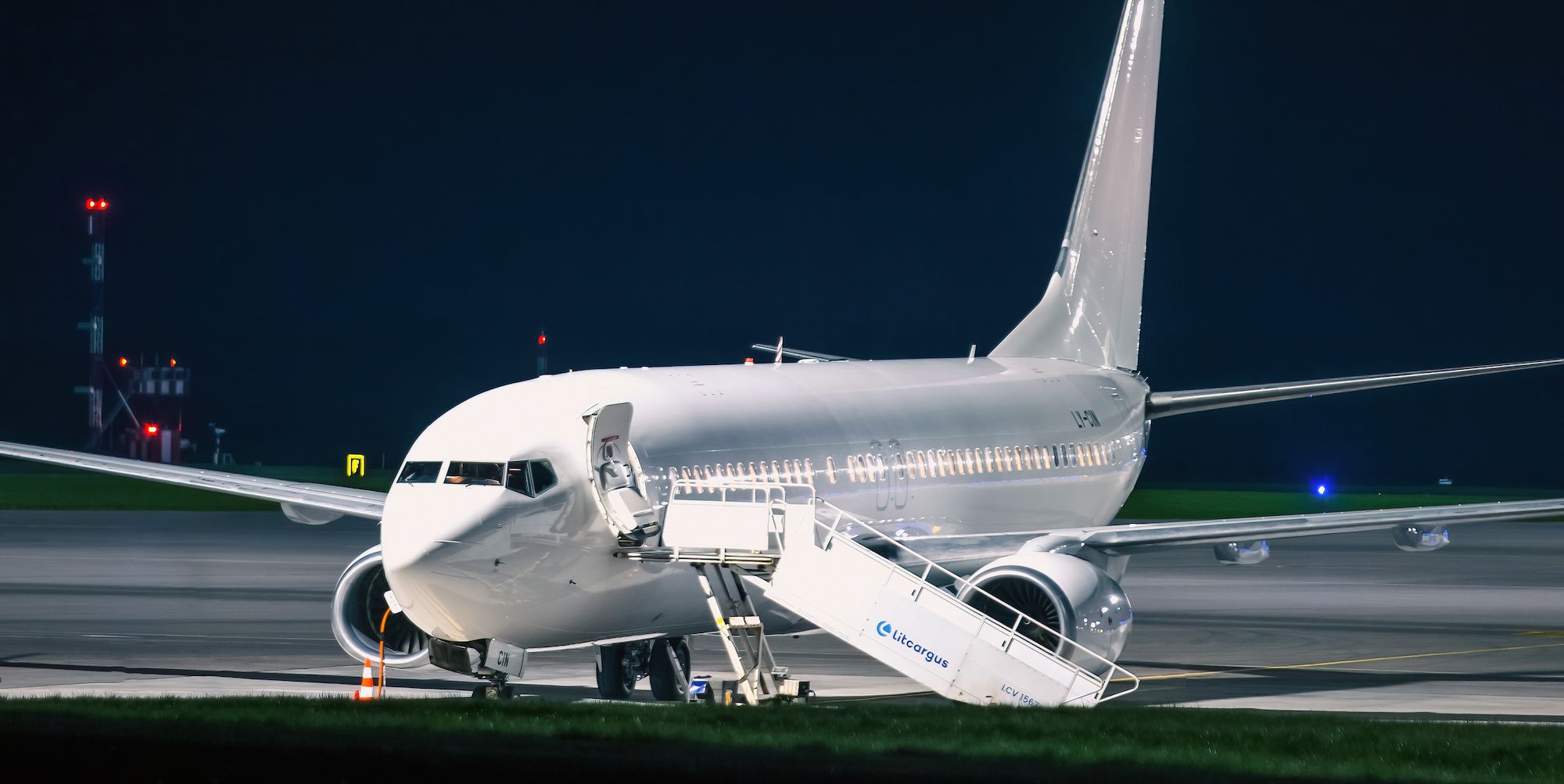[ad_1]
airBaltic is in a strange predicament this year. The Latvian, all-Airbus A220-300 operator finds itself wet leasing aircraft to maintain its scheduled flights amid engine maintenance delays while at the same time, wet leasing out its own functioning A220s to SWISS. So how did this situation come to be?
War and disease
It’s fair to say that airBaltic may not have been too optimistic about its own business opportunities over the past two years. Not only did COVID strike a severe blow to operations, but Russia’s invasion of Ukraine in February 2022 also cut down on the number of destinations it could serve, particularly in light of its geographical position along the Baltic Sea beside Russia. Indeed, prior to the war, airBaltic had flown to multiple cities in both Russia and Ukraine. The year prior, it had also connected Riga to Minsk, in Belarus.
Over in Zurich and Geneva, SWISS, a fellow early customer for the A220, has been impacted by Pratt & Whitney’s supply chain issues. Commenting on the fact that about a quarter of its A220 fleet was on the ground, a spokesperson told Simple Flying that some of this was due to an increased need for replacement engines earlier than planned.
“This overhaul is taking a long time because of the current shortage of spare parts – this is creating a backlog with the effects on flight operations.”
Photo: SWISS
And so, when SWISS needed to secure some wet lease partners to stabilize its own schedule, airBaltic was there with excess capacity and the ability to do something with its underutilized aircraft. At the time, it seemed to be a good fit, considering the fact that SWISS was also an A220 operator. This somewhat eased the shock for SWISS customers expecting to fly on the modern aircraft type.
SWISS is grateful to both airBaltic and Helvetic Airways, telling Simple Flying that both of these airlines have helped to provide passengers with “reliable flight operations even in this challenging environment.”
airBaltic’s own engine supply issues
Soon enough, however, airBaltic also found itself a victim of Pratt & Whitney’s supply chain issues. Airline CEO Martin Gauss told Simple Flying that, where an engine replacement once took 90 days, it was now closer to eight months. This has forced the airline to also wet lease aircraft to fulfill its commitment to passengers – something that Mr Gauss has been very reluctant to do. At the end of March, the airline executive expressed his frustrations, telling Simple Flying:
“[This situation] is forcing me to say ‘Yes, sorry passengers, we now need to transport you on something you didn’t pay for. If you fly on a CRJ when you booked on a brand new A220…that’s just not an A220 – especially when it comes to environmental concerns. It’s also different if you fly on an A320 that is 12 years old fitted with a charter configuration and a business class with a curtain. This is where the passengers say ‘sorry, we have booked a different product’ and we say ‘sorry, but the alternative is we cancel the flight.'”
Photo: airBaltic
Of course, the Latvian carrier would have more of its A220s at its disposal had it not already committed them to flying for SWISS. When asked to comment on the situation, an airline spokesperson told us that the 14 of its own aircraft it has committed to wet leasing this summer season had been “done accordingly to the airline’s business plan and agreements with these airlines.” These agreements “came into force before airBaltic started to experience the escalation of global supply chain issues and engine shortage.”
Therefore, the carrier reiterates that it has been forced to enter into short-term wet lease agreements with other airlines in order to perform its own scheduled operations. At present, the airline has between 10 and 11 of its 41 A220s on the ground, telling Simple Flying that, while some are inactive due to scheduled maintenance, nine are parked due to engine-related delays.
ACMI operators to the rescue
Charter and wet lease carriers may ultimately be the main beneficiary of Pratt & Whitney’s engine issues. SWISS having to ground some of its A220s and utilize part of airBaltic’s fleet means that airBaltic has been looking to other airlines for capacity.
As Simple Flying reported in March, airBaltic has turned to Lithuanian charter airline Avion Express for help. This sees Avion Express sending out four A320-200s for airBaltic operations on a wet lease basis, meaning that airBaltic will assume commercial responsibility for the operation of the aircraft while Avion Express provides the aircraft themselves, plus pilots and cabin crews.
It also sounds like another Lithuanian carrier by the name of GetJet also wants to make itself known during this time of need in the aviation world. In a press statement covering the expansion of its fleet, a company spokesperson stated:
“The demand for ACMI is growing due to supply chain issues faced by major manufacturers. These issues lead to a big shortage of aircraft and parts and create a lot of challenges for big airlines globally. By expanding our fleet we will maintain our flexibility and commitments to the clients worldwide.”
Photo: Adomas Daunoravicius | GetJet
This whole situation reveals the important role that charter airlines play in commercial aviation. Not only might they allow private groups to arrange a one-off flight, but they also help out airlines that suddenly find themselves unable to stabilize their own schedules and fulfill their obligations to customers.
While it’s unfortunate that customers may not step onboard the new and modern Airbus A220 they were hoping for, they will at least be able to get to their intended destination on the day they planned.
What do you think of airBaltic’s wet leasing situation? Share your thoughts by leaving a comment!
Sources: Planespotters.net, FlightRadar24.com
[ad_2]
Source link

